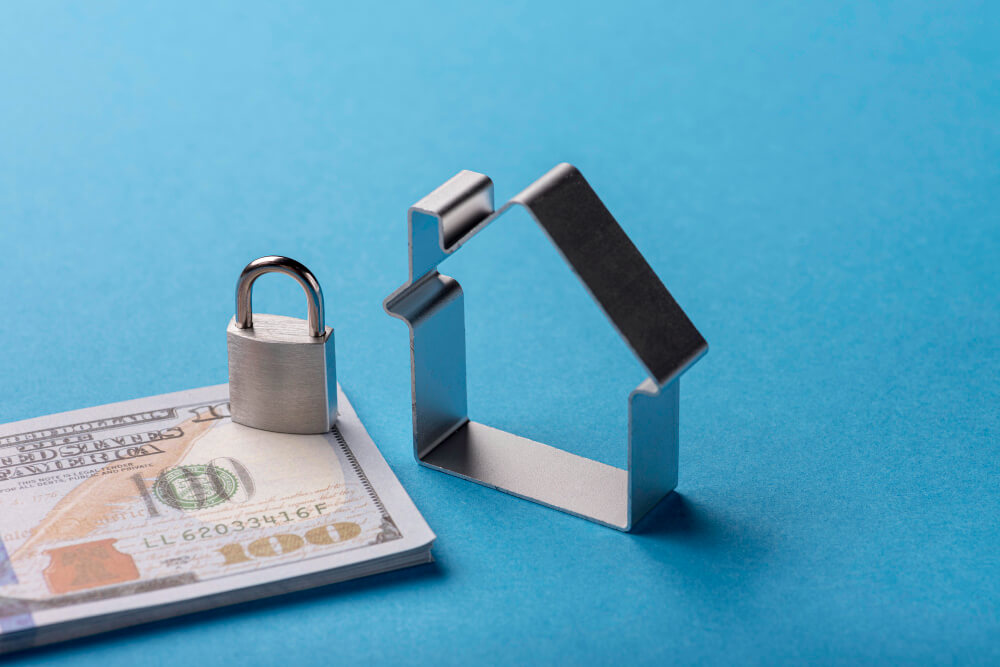Renting a property can be a convenient and flexible housing option, but it comes with its own set of responsibilities and financial obligations for both landlords and tenants.
One of the most critical aspects of renting is the security deposit, which acts as a safeguard for landlords in case of damage or unpaid rent. However, understanding what costs can be deducted from a tenant’s security deposit is vital for both parties.



In this blog, we’ll explore the key expenses that landlords can legally deduct from a security deposit.
Costs that a Landlord can Deduct From A Tenant’s Security Deposit:
- Unpaid Rent:
The most common reason a landlord may deduct from a tenant’s security deposit is for unpaid rent.
If a tenant does not pay rent and leaves without paying their last month’s rent or has accrued outstanding rent during their tenancy, the landlord has the right to use the security deposit to cover these costs.
It’s essential for tenants to ensure all rent payments are up to date before vacating the property.
- Property Damage:
Landlords can also deduct from the security deposit to cover the costs of repairing any damage beyond normal wear and tear.
This includes damage caused by the tenant, their guests, or pets.
Examples of such damage might include broken windows, holes in the walls, stained carpets, or damaged appliances.
To avoid these deductions, tenants should take good care of the property during their stay and report any issues promptly.
- Cleaning Expenses:
Tenants are typically responsible for returning the property in a clean and tidy condition, similar to how it was when they moved in.
If the property requires cleaning beyond what is considered normal wear and tear, the landlord can use the security deposit to cover cleaning expenses.
This may include professional carpet cleaning, deep cleaning of the kitchen and bathroom, or the removal of debris left by the tenant.
- Unpaid Utility Bills:
Landlords can also use the security deposit to cover unpaid utility bills if the tenant leaves without settling them.
Tenants should ensure that all utility bills are paid in full before moving out to avoid this potential deduction.
- Repairs and Maintenance:
Sometimes, repairs and interior and exterior maintenance are necessary due to general wear and tear, not directly caused by the tenant.
In such cases, the cost of these repairs should not be deducted from the security deposit.
It’s the landlord’s responsibility to maintain the property in good condition, and they cannot charge tenants for regular maintenance and repairs.
- Excessive Wear and Tear:
While landlords can deduct for excessive damage, they cannot deduct for ordinary wear and tear.
Wear and tear are the natural and expected deterioration that occurs over time with regular use of the property.
This includes minor scuffs on the walls, minor carpet wear, and other minor signs of use.
Tenants should not be held responsible for these issues.
- Legal Fees:
In some cases, a landlord may need to take legal action against a tenant, such as evicting them or pursuing a lawsuit for damages.
If the lease agreement allows for it, the landlord may deduct legal fees associated with such actions from the security deposit.
However, this is subject to the laws and regulations in your jurisdiction, and not all locations permit this deduction.
Conclusion
Understanding what costs can be deducted from a tenant’s security deposit is crucial for both landlords and tenants.
It helps to prevent disputes and ensures a fair and transparent rental process.
Landlords should document the property’s condition before and after a tenant’s stay, and tenants should maintain the property and fulfill their financial obligations.
Open communication between landlords and tenants can also prevent misunderstandings and disputes over security deposit deductions and help in building strong and inclusive communities.
Ultimately, a security deposit is meant to protect the interests of both parties, ensuring that the property is well-maintained and that all financial obligations are met.
Explore our website to learn from the experts in the industry with the free webinar training. Register for the free webinar now!




